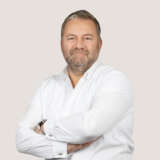Pioneer in global healthcare – Sportklinik Hellersen relies on strong partners worldwide
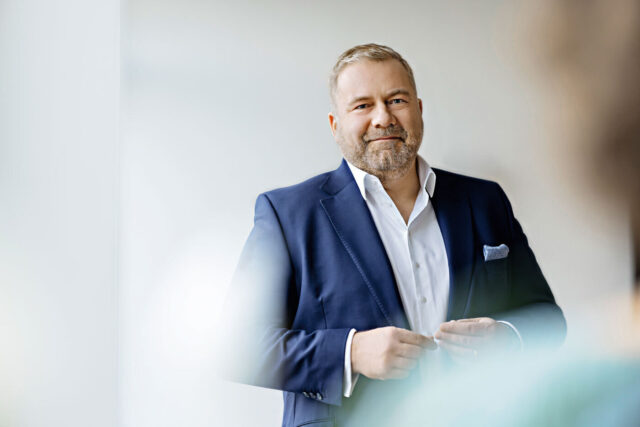
Photo: Hanna Witte
In times of advancing technological developments, an urgent shortage of skilled workers, and increasing global competition in the healthcare sector, innovative solutions must transcend national borders. CEO Dirk Burghaus is actively addressing this challenge and, with Sportklinik Hellersen, is focusing on international partnerships to secure a sustainable future in the healthcare industry. In an interview with Hellersen Insight, he explains how collaborations open up new opportunities and shape medical cooperation in the long term.
Video: Sportklinik Hellersen
The Sportklinik Hellersen recently entered into an important partnership with the Emirates International Hospital in Abu Dhabi. How did this cooperation come about?
Dirk Burghaus: Our main goal is to ensure the best possible care for our patients. For this reason, we are convinced that we need to leave the “Germany bubble” and focus more on international partnerships. The United Arab Emirates in particular is playing a pioneering role in areas such as artificial intelligence and innovative medicine. We want to bring this knowledge to Germany and at the same time strengthen the international reputation of the Sportklinik Hellersen. We want to combine the high quality of German medicine and excellent medical training with the positive international opportunities available.
Internationalization is a decisive factor in healthcare today. The Middle East region, especially the Emirates and Saudi Arabia, plays a central role in this. They are economically strong and already have close ties to Germany, both through skilled workers and through cooperation in the medical field. Our partnership in Abu Dhabi arose from direct discussions on site. We were looking for an experienced partner in the hospital sector and found it in Emirates International Hospital. Synergies quickly emerged, particularly in the fields of orthopedics and surgery, as our values in terms of medical quality and patient care were very similar. It was therefore a natural step to establish a long-term cooperation.
What are the major differences between the healthcare systems in the Middle East, particularly in the United Arab Emirates, Saudi Arabia, and Germany?
Dirk Burghaus: The numerous differences between the healthcare systems are particularly noteworthy here, especially the insurance system: Compulsory insurance is not yet universal in the Emirates, but it is being introduced gradually—this is currently an important issue in Saudi Arabia in particular. Looking to the future, comprehensive compulsory insurance is increasingly becoming a reality in the region.
Another key difference lies in the political prioritization of healthcare. In the United Arab Emirates, healthcare is at the top of every economic agenda. In Germany, on the other hand, the healthcare system is largely taken for granted and often given low political priority. There is still considerable room for improvement, while the United Arab Emirates, especially Saudi Arabia, are already much more advanced in this area. Healthcare is given much higher priority there.
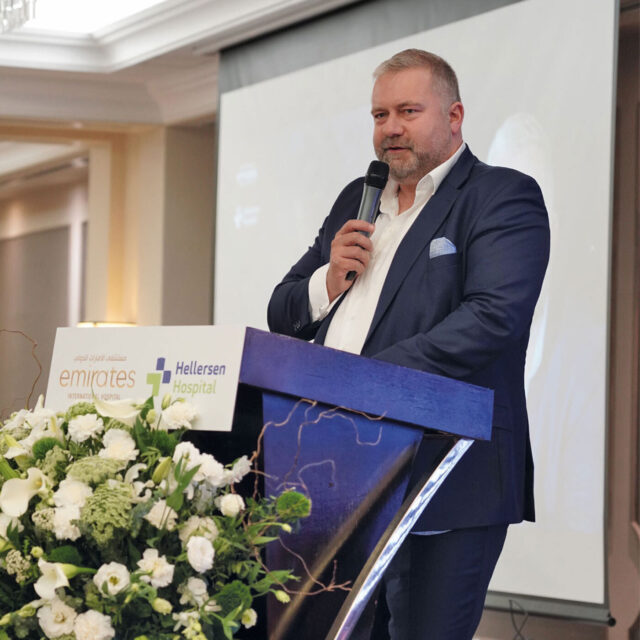
What challenges and opportunities does this partnership bring?
Dirk Burghaus: Cultural differences are certainly a challenge. Whether it's working hours, models, or culture, there are some major differences here. A good example is job security, which exists in Germany like in hardly any other country. This is exactly where our model comes in: Through the cooperation, medical professionals can work abroad under the umbrella of Sportklinik Hellersen while enjoying the security of a German employer.
This combination is highly valued by skilled workers and represents a significant advantage of our concept. Top medical professionals in particular are driven by the idea of developing internationally and helping to shape medical progress. In recent months, we have received an increasing number of inquiries from internationally recognized physicians who have either already worked with us or are interested in collaborating with us. These medical professionals are specifically looking for an international work environment where they can further develop their expertise.
This naturally also benefits patients: At Sportklinik Hellersen, we have always been committed to providing excellent medical care. Our international orientation allows us to further expand the already high quality standards of our medical care—both here in Lüdenscheid and in the Middle East, where we are establishing our high standards. Despite our location disadvantage compared to large cities such as Hamburg or Berlin, this cooperation enables us to further expand our medical care and make it accessible to patients worldwide.
The cooperation aims to establish a joint training strategy. What does this concept look like and what measures are being taken to counteract the shortage of skilled workers?
Dirk Burghaus: We are currently working on becoming the first hospital in the world to train Arab medical specialists. Until now, specialist training has only been available in the 22 Arab countries that belong to the Arab Board of Health Specializations. This body coordinates training at numerous institutions in the region.
We are currently in the final stages of the audit process and expect to receive final approval in the second quarter of 2025. Implementation is expected to begin in the third and fourth quarters. This would make us the first healthcare facility in the world to train Arab medical specialists outside of Arab countries. This development opens up a significant opportunity for us, as medical specialists from the Arab world are keen to come to us. They are highly motivated and have a promising medical future. Ultimately, our focus is always on medical excellence and providing the best possible care and treatment for our patients worldwide.
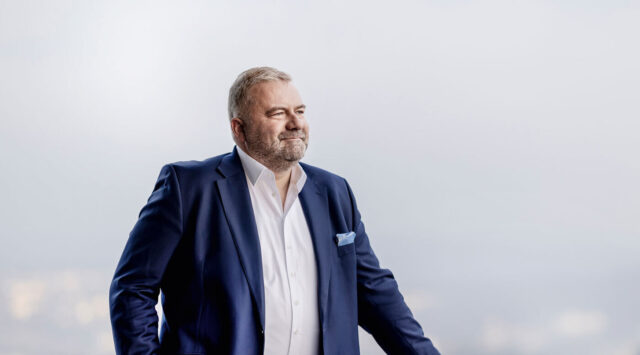
Photo: Hanna Witte
What does the dual specialist training mean for the career opportunities of the doctors and for Sportklinik Hellersen?
Dirk Burghaus: Doctors who want to stay in Germany after their training are in high demand here and are welcomed with open arms. Our training program enables them to obtain both German and Arab specialist qualifications – a clear unique selling point. Without the approval of the Arab Board of Health Specializations and the combined training program at our clinic, doctors would have to complete two separate training courses to obtain this qualification.
Of course, there will also be specialists who return to their home countries. This is precisely where we come in: we want to establish a strong presence not only in Germany but also in the Emirates so that these highly trained doctors remain connected to us. This will not be possible in every case, but one thing is clear: those who train doctors and produce highly qualified medical professionals ultimately help shape standards and developments in the industry.
This way of thinking can perhaps be explained well with the following example: When a chief physician retires and can say, “I trained five new chief physicians during my career. That makes me proud!” That is not the standard for everyone today, but it is in line with our philosophy as a center for medical excellence. In the long term, we will be very successful because the best talent will come to us on their own.
“We want to establish a strong presence not only in Germany but also in the Emirates so that these highly trained doctors remain connected to us.”
Dirk Burghaus
Chairman of the Board of Sportklinik Hellersen
How do you deal with potential language barriers that arise from the training cooperation?
Dirk Burghaus: The doctors who come to us usually speak English fluently. However, a basic requirement for their training is that they also speak German to ensure smooth communication with patients. German language skills are therefore essential, and German courses are an integral part of our training. Doctors from the region are particularly motivated to learn the language because they know how important it is for their professional future and for communicating with patients.
We make sure that language skills are tested before training begins to ensure that communication with patients works well, as this is a decisive factor in successful treatment.
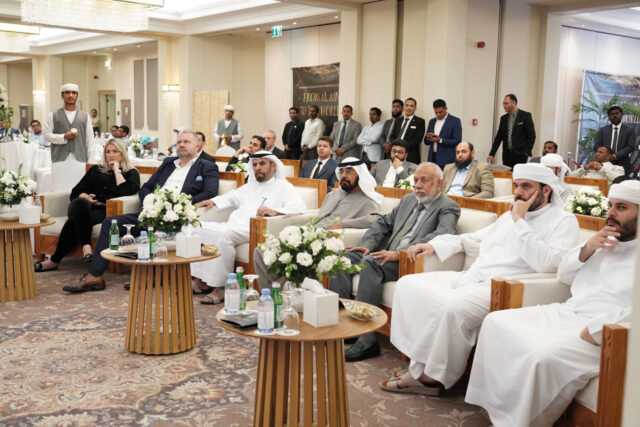
The new partnership between Sportklinik Hellersen and Emirates International Hospital in Abu Dhabi was celebrated at the opening ceremony.
A key goal of the collaboration is to introduce innovative concepts in patient care. What new approaches are you planning to improve patient treatment and care?
Dirk Burghaus: A key goal of our collaboration is to introduce innovative concepts in patient care to ensure first-class care for people worldwide. We want patients to benefit from the best medical services regardless of their location. Thanks to modern technologies such as video conferencing, teleconsultation, and AI-supported collaboration, we are already able to efficiently perform many aspects of medical care—with the exception, of course, of operations, which still require direct contact.
Our goal is to ensure that our medical professionals can provide optimal care both on site and remotely through regular exchange and cooperation. This enables us to establish an integrated care concept in Germany, Europe, and the Middle East, and to provide patients worldwide with first-class medical care.
How do you rate technological progress in healthcare in the United Arab Emirates, particularly the use of AI and digital patient care compared to Germany? Where do you see room for improvement in this country?
Dirk Burghaus: The significant digital progress in the United Arab Emirates is enormous compared to Germany. When entering a doctor's office, the patient's fingerprint is scanned and the doctor immediately receives all health data – including from pharmacies. This means that the doctor knows, for example, if a patient has recently had wisdom tooth surgery and is taking painkillers, even if the patient forgets to mention it. This information is essential for providing comprehensive medical care. At the same time, data protection is very strictly enforced in the Emirates. This means that only the doctor has access to this data.
In Germany, electronic patient records have been under discussion for over ten years. What is already reality in the United Arab Emirates is still in the planning stage here. And we're not even talking about AI, just electronic records – it's hard to understand why this hasn't been implemented yet.
The Emirates have a more advanced understanding of innovation than Germany, where “data protection hammer” often slows down implementation. Germany also has some catching up to do in terms of administration: doctors in the Emirates are more efficient because they have less bureaucracy and more time for patients.
Sportklinik Hellersen is also highly regarded and supported by industry, as we strive to participate in international projects. We are also very innovative in the field of digitalization and are on the verge of offering cross-border services such as telemedicine—from Lüdenscheid to Abu Dhabi—in an excellent system for making diagnoses.
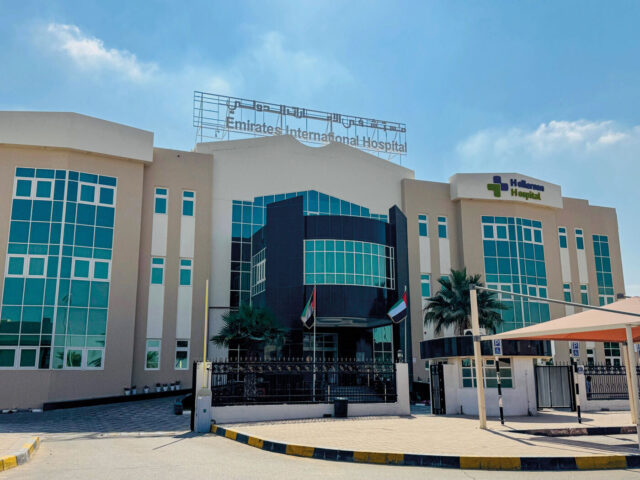
The Emirates International Hospital in Al Ain, Abu Dhabi, now proudly bears the logo of Sportklinik Hellersen – International: Hellersen Hospital.
How will this partnership facilitate access to German treatment options for patients from the United Arab Emirates?
Dirk Burghaus: It's quite simple: if a local doctor examines a patient and determines that complex surgery is necessary—for example, in the case of difficult scoliosis in spinal surgery—they contact our specialists in Lüdenscheid. In many cases, we then conduct a video consultation, during which the specialist assesses the patient in advance. Together with the patient, the doctors then decide whether it would be better to perform the operation in Germany. We then take care of all the organization and healthcare on site.
After treatment in Germany, the patient remains under our care even after returning to the Emirates. The patient continues to have a contact person who is affiliated with the Sportklinik Hellersen and can provide post-operative care.
We are currently negotiating with Emirati health insurance companies to be recognized as an official hospital. This would allow insured patients to receive treatment directly at Sportklinik Hellersen without having to pay upfront—similar to health insurance in Germany. Billing would then be handled directly with the insurance company, which would simplify the process for everyone involved.
“We want to leave the ‘Germany bubble’ and look beyond our own horizons.”
Dirk Burghaus
Chairman of the Board of Sportklinik Hellersen
In what direction is the Sportklinik Hellersen developing in the field of international healthcare, and are further collaborations planned?
Dirk Burghaus: We want to leave the “Germany bubble” and look beyond our own horizons. That is why we are currently exploring partnerships with five renowned institutions in China, including universities and hospitals. China offers a completely different dimension in healthcare—with millions of patients every year, the scale there is considerably larger than in Germany. At the same time, there is growing interest in German medicine and in working with us. We are also in close contact with institutions in Saudi Arabia and Turkey to develop joint projects based on our successful model in the United Arab Emirates.
Hellersen Hospital stands for medicine without borders.
The Hellersen Hospital, the international branch of the Sportklinik Hellersen, combines German cutting-edge medicine with state-of-the-art medical technology and innovative treatment concepts. It stands for the highest quality of care, sustainable promotion of skilled workers, and close international cooperation—a model that sets new standards across borders.
Strategic partnerships, such as the one with Emirates International Hospital in Abu Dhabi, are a key element of this international focus. This close cooperation intensifies the global exchange of knowledge while establishing new, groundbreaking therapeutic approaches. Patients benefit from state-of-the-art medical standards, telemedical care, and expanded treatment options—both in Germany and in the United Arab Emirates.
In addition to patient care, specialist training also plays a crucial role. Hellersen Hospital is actively involved in the further development of international medical qualifications, thereby contributing to the sustainable strengthening of the healthcare industry. This close cooperation not only promotes medical excellence, but also deepens intercultural exchange between countries.




